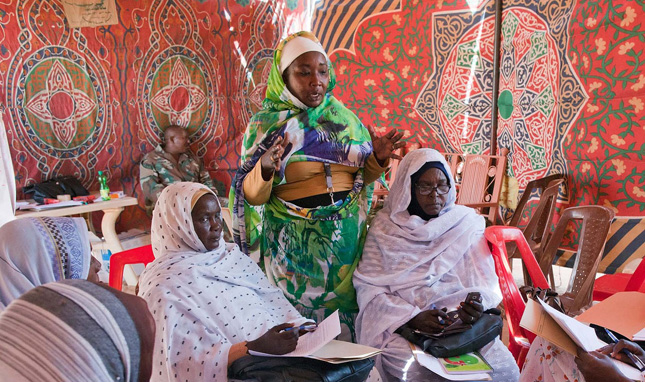-
Women’s Leadership for Stability and Security
June 13, 2017 By Amelie Petitdemange
Why is Malawi, one of the poorest countries in the world, so peaceful? According to the country’s first female president, Joyce Banda, women get the credit: “When women are in charge, when women control the land, when the children belong to the women, when domestic violence is minimum, then you find more tranquility and peace,” said Banda, now a Wilson Center Distinguished Fellow, at an April 25th event co-sponsored by the Wilson Center’s Women in Public Service Project and Plan International USA.
“We have to realize that leadership doesn’t have a specific face or a specific level, especially in post-conflict [settings] and transitioning societies,” said Robin Lerner, the senior policy advisor and counselor in the Department of State’s Office of Global Women’s Issues. “If we understand that then we can understand what kind of leadership we might be looking at for women and help them to achieve it in their communities.”
Women are often more impacted than men by violent conflicts, but they are also able to respond to those conflicts, especially as peace facilitators, making post-conflict situations a fertile ground for women leadership. For example, “Colombia is coming out of an important negotiation with the largest illegal armed group [the FARC]. It’s definitely a turning page in the country, and the actual peace deal is very much recognizing women as leaders of the reconstruction. It also recognizes that the majority of the victims have been women and children,” said Gabriela Bucher, executive director of Plan International Colombia.
“I was in Croatia in the ‘90s and in Kosovo in the 2000s. I watched women going from being the face of sexual violence in conflicts to the new civil society, to the new economic drivers for their families, to the communicators between international community and their own population, and the glue that held it together because of their ability to adapt,” said Lerner.
There is a virtuous cycle of peace, economic growth, and empowerment: Women and girls help create the conditions for sustainable peace and stability, which is “a precondition for sustainable economic growth. You can’t be talking about economic opportunities and growth if you don’t have the fundamentals,” said Tessie San Martin, President and CEO of Plan International USA.
“There is a link between economic empowerment and social empowerment. You can gain respect, you can make decisions about your life, you can provide a better health and education to your child if you are economically empowered,” said Dr. Banda.
For more on women’s contributions to peace and stability, see our April 29, 2016 event on the growing role of women in sustainable development and peace building.
You can hear more from H.E. Joyce Banda in her conversation with Gwen Young of the Women in Public Service Project on the importance of advancing women leaders in Africa.
Amelie Petitdemange is an intern with the Women in Public Service Project.
Photo Credit: Women attend the Open Day Workshop on the UN Security Council Resolution 1325 on Women, Peace and Security in Malha, North Darfur, organized by UNAMID Gender Unit, courtesy of Sojoud Elgarrai, UNAMID,.
 A Publication of the Stimson Center.
A Publication of the Stimson Center.



